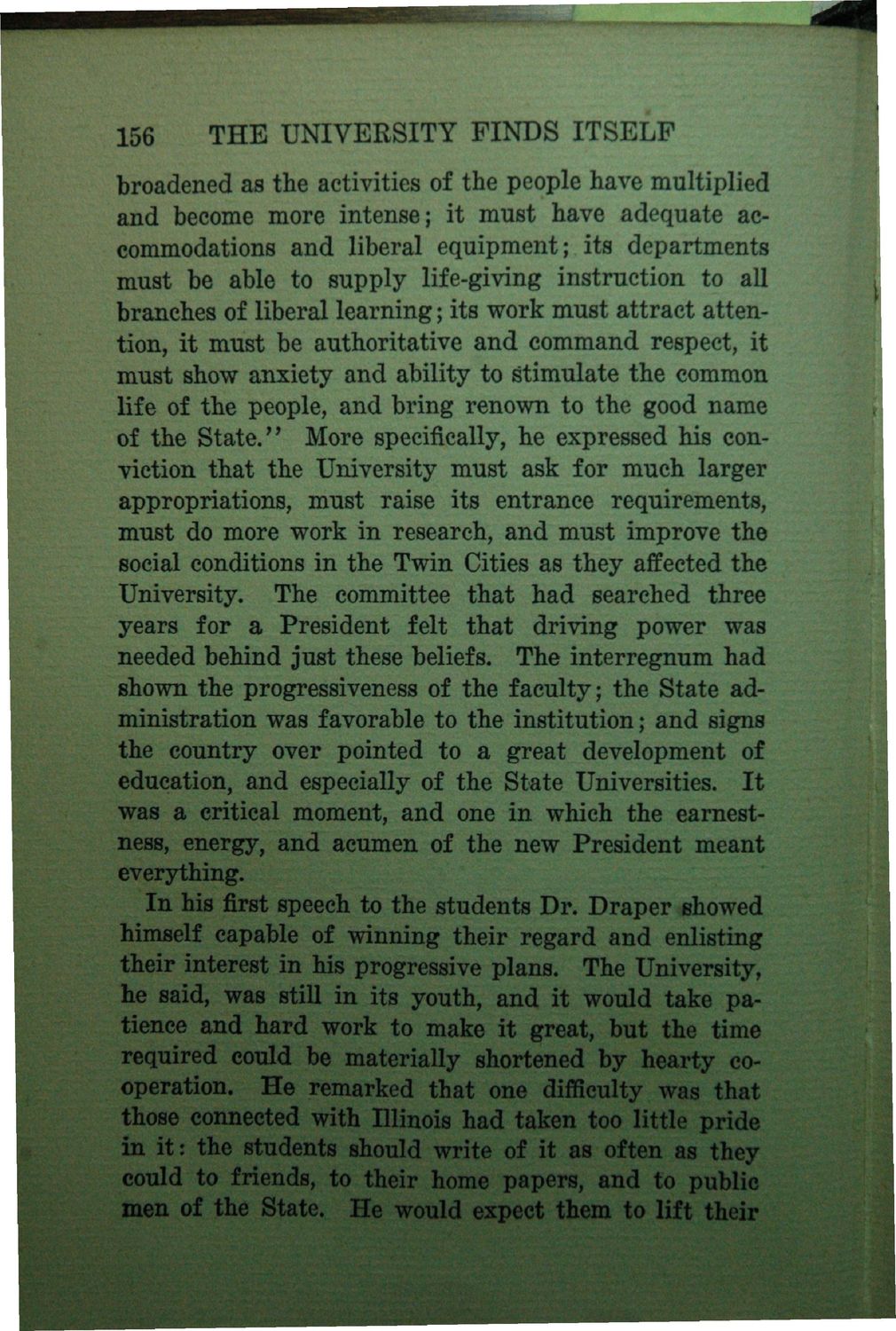| |
| |
Caption: Book - History of the University (Nevins)
This is a reduced-resolution page image for fast online browsing.

EXTRACTED TEXT FROM PAGE:
156 THE UNIVERSITY FINDS ITSELF broadened as the activities of the people have multiplied and become more intense; it must have adequate accommodations and liberal equipment; its departments must be able to supply life-giving instruction to all branches of liberal learning; its work must attract attention, it must be authoritative and command respect, it must show anxiety and ability to Stimulate the common life of the people, and bring renown to the good name of the State.'' More specifically, he expressed his conviction that the University must ask for much larger appropriations, must raise its entrance requirements, must do more work in research, and must improve the social conditions in the Twin Cities as they affected the University. The committee that had searched three years for a President felt that driving power was needed behind just these beliefs. The interregnum had shown the progressiveness of the faculty; the State administration was favorable to the institution; and signs the country over pointed to a great development of education, and especially of the State Universities. It was a critical moment, and one in which the earnestness, energy, and acumen of the new President meant everything. In his first speech to the students Dr. Draper showed himself capable of winning their regard and enlisting their interest in his progressive plans. The University, he said, was still in its youth, and it would take patience and hard work to make it great, but the time required could be materially shortened by hearty cooperation. He remarked that one difficulty was that those connected with Illinois had taken too little pride in it: the students should write of it as often as they could to friends, to their home papers, and to public men of the State# He would expect them to lift their
| |